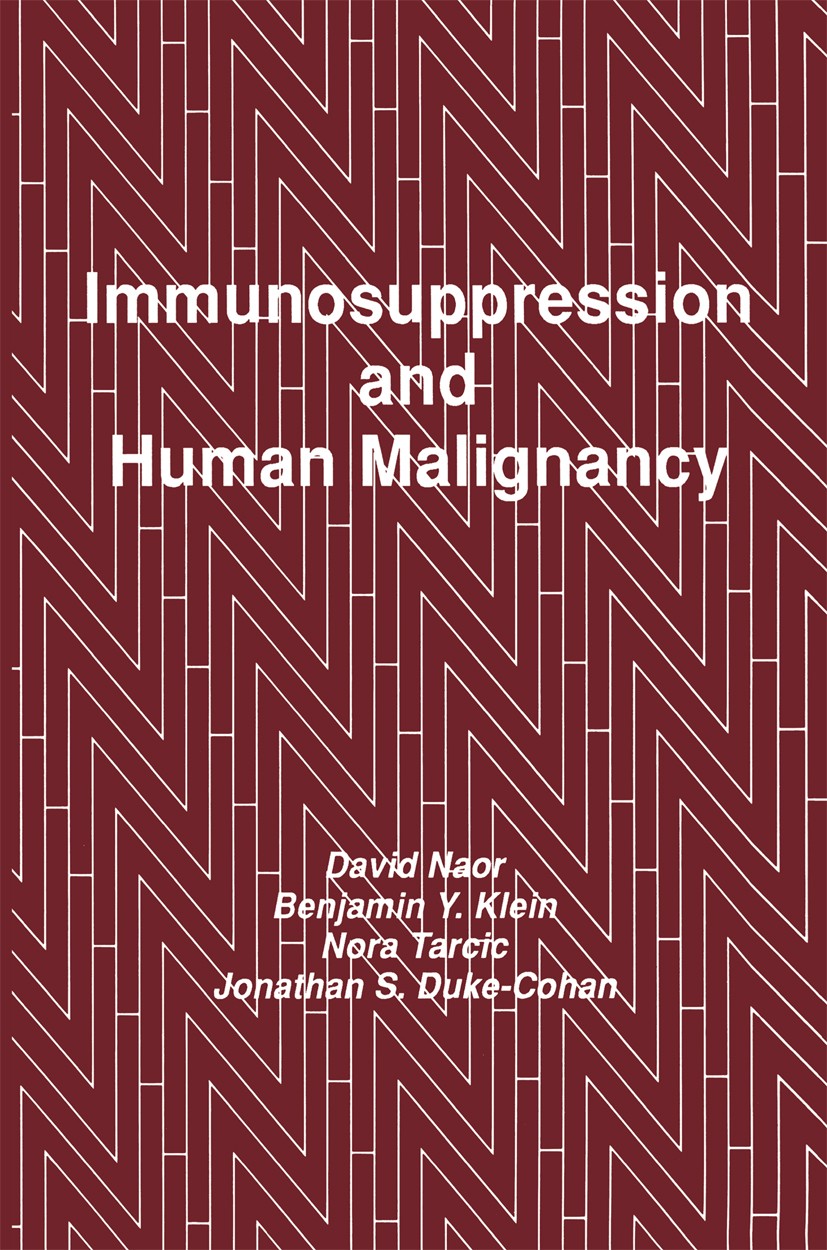| 书目名称 | Immunosuppression and Human Malignancy | | 编辑 | David Naor,Benjamin Y. Klein,Jonathan S. Duke-Coha | | 视频video | http://file.papertrans.cn/463/462290/462290.mp4 | | 丛书名称 | Contemporary Immunology | | 图书封面 |  | | 描述 | The immune system can deal effectively with the majority of viruses and bacteria, less effectively with parasites, and very poorly with cancer. Why is this so? Why are McFarlane Burnet‘s and Lewis Thomas‘ predictions that the immune system is in volved in ridding the body of cancer cells, encapsulated in the catchy phrase "immunologic surveillance," so difficult to experi mentally establish? Cancer differs from infectious agents in being derived from the host. Hence, it has been postulated that cancer cells lack anti gens that the immune system can recognize. They are not "im munogenic. " However, this argument is seriously weakened by the existence of numerous human autoimmune diseases, in which the immune system effectively recognizes and attacks a va riety of self tissues. Thus, the potential clearly exists for recogni tion of the surfaces of tumor cells. Professor Naor and his colleagues have written a book that explores another possible reason: cancer cells are recognized by the immune system-but is it possible that the consequence of recognition is inhibition of the immune system-by suppressor T cells or macrophages? The evolution of the malignant state may only occur i | | 出版日期 | Book 1989 | | 关键词 | Antigen; T cell; autoimmunity; carcinogenesis; cell; diseases; immunosuppression; immunotherapy; leukemia; ly | | 版次 | 1 | | doi | https://doi.org/10.1007/978-1-4612-4496-7 | | isbn_softcover | 978-1-4612-8846-6 | | isbn_ebook | 978-1-4612-4496-7 | | copyright | The Humana Press Inc. 1989 |
The information of publication is updating

|
|
 |Archiver|手机版|小黑屋|
派博传思国际
( 京公网安备110108008328)
GMT+8, 2026-1-2 18:52
|Archiver|手机版|小黑屋|
派博传思国际
( 京公网安备110108008328)
GMT+8, 2026-1-2 18:52


